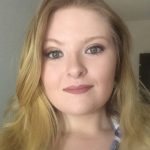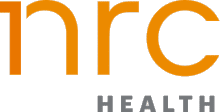On Halloween night 2014, my mother and I found ourselves sitting in an executive suite at the Verizon Center in Washington, DC, eagerly awaiting to see my favorite band, Fleetwood Mac. I know it may be a little odd that someone my age, which at the time was 21, is obsessed with that band and not something more “hip” like one of the flavor of the week popstars, but what can I say? I have good taste in music, thanks in part to my mother.
As the lights in the arena went down and Stevie Nicks and the group took the stage, I couldn’t help but think how lucky I was to be here with my mother. Looking back now, it is quite astonishing to me that she is even alive, let alone able to accompany me to a show that we had to travel two hours to see. As a child and teenager I was not sure if I would ever get that lucky. This group knows my mother as Tracy Zervakis, a strong minded and often outspoken e-patient and patient advocate, but I know her simply as “Mom.”
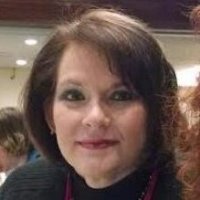
Tracy Zervakis
When I was about eight or nine years old I remember that almost suddenly my mother was not the same person she used to be. She went from being the silly, fun mom who was always active to staying in bed all day due to debilitating headaches. Shortly after began the whirlwind years of doctor appointments and visits to specialists. She was diagnosed with everything from multiple sclerosis to a mental disorder (a specialist questioned her sanity and recommended she see a psychiatrist). Finally, after years of searching, she was diagnosed first with geniculate neuralgia, a cranial nerve disorder, then with a major Chiari Malformation with a destroyed cervical spine. She had to have multiple brain and spine surgeries just to save her life.
My Mom in Surgery
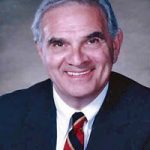 Dr. Peter Jannetta, assisted by Dr. Kenneth Casey, performed the microvascular decompression surgery at Allegheny General Hospital in Pittsburgh, Pennsylvania. They were the only specialists in the world able to handle her complex case. In a word, they were wonderful. They did everything they could to put our minds at ease by answering most questions before they were even asked. They spoke to me for hours at a time to make sure that I had all of my questions answered and was comfortable with not only my mother’s surgeries, but with her prognosis and their assurance that she would at the worst lose hearing.
Dr. Peter Jannetta, assisted by Dr. Kenneth Casey, performed the microvascular decompression surgery at Allegheny General Hospital in Pittsburgh, Pennsylvania. They were the only specialists in the world able to handle her complex case. In a word, they were wonderful. They did everything they could to put our minds at ease by answering most questions before they were even asked. They spoke to me for hours at a time to make sure that I had all of my questions answered and was comfortable with not only my mother’s surgeries, but with her prognosis and their assurance that she would at the worst lose hearing.
I was 11 years old when my mother had this surgery in October 2004, but very comfortable with the whole situation and my mother living through the surgery. That weighs heavily on a child with a non-diagnosable chronically ill parent. When my mother came to after the microvascular decompression surgery, she was assaulted with constant motion sickness. I recall her saying that even opening her eyes or seeing the clouds move made her sick. The worst part was that none of the medicines they had could help her. Dr. Jannetta didn’t hesitate to call in an acupuncturist to treat her, and that was the only thing that diminished the constant Tilt-a-Whirl my mother felt when her eyes opened. Acupuncturists or other alternative medicine practitioners are not usually allowed to treat a hospital patient.
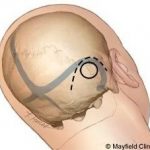
A skin incision is made behind the ear (dashed line) and a 1-inch craniectomy (solid line) is made in the skull.
At my mother’s post-op checkup, Dr. Jannetta thought something wasn’t quite right and ordered an xray and MRI that day. The next morning, Dr. Jannetta called my mother on her way to work and asked her to pull over. He told her she had a serious Chiari Malformation and the blocked pressure had destroyed her cervical spine. She needed emergency surgery to halt the imminent progression of quadriplegia. Dr. Jannetta and a team of surgeons then went on to perform 16+ hours of additional surgeries: a craniotomy, Chiari decompression with duraplasty using a cadaver’s pericardium as a graft, and a completely rebuilt cervical spine the next morning.
My Mom’s Severe Chronic Pain
After the first surgery, our family went into survival mode while Mom and her doctors here at home tried to find a treatment plan to manage her severe chronic pain. Most people with rare disorders know what a major problem it is to try for so long to find just one medicine or any treatment to make your life more bearable. Caregivers know how painful it is to see someone you love go through the gauntlet every day just to try and live some semblance of a normal life. I often accompanied my mother to her appointments. I felt some of her day-to-day care fall on my shoulders. I know that the doctors probably meant well, but it really felt like no one listened. It felt like no one cared.
Some readers may be asking themselves why my mother would include me in any of her medical appointments or caregiver activities at a young age. The answer is simple. I love my mother and it would have been more difficult for me not knowing and worrying than knowing and trying to help her. I have even left out many side effects and traumas that my mother suffered to spare her embarrassment among her peers.
Our Family’s “New Normal”
Eventually, time passed and we found our family’s “new normal.” At the same time my mother’s quality of life was deteriorating. She would often sit in the house for weeks at a time, not able to leave due to her high level of pain or depression. Oftentimes one of her only outings would be to see her primary care physician, Dr. Neal Carl. Dr. Carl is the perfect example of what a physician should be: he is kind, thorough, smart, and most of all he took the time to really sit down and talk with my mother and try to set out a viable treatment plan. Even though he did not and does not always have all the answers to our questions he has never hesitated to research or reach out to a specialist on her behalf.
He also has not forgotten the one thing that I think so many people with rare disorders and their caregivers need so badly: someone to listen to them and hear what the patient is actually saying. Patients need someone to acknowledge that they have concerns and answer their questions.
Dr. Carl did that for us and he continues to do that for us 11 years post Mom’s Chiari surgery. Even when Dr. Carl merged his practice with a local hospital group he always ensured my mother received excellent care even if it was by telemedicine or through his nurse practitioner. Then he moved to total individual medicine and opened a concierge practice to get away from the current problems in healthcare that make it difficult for all medical providers.
On Being a Young Caregiver
Being a caregiver to my mother at a young age was definitely not something that I was prepared to do. I know it isn’t an easy task at any age, but as a child it was sometimes hard to understand why my mother couldn’t do the things that other moms could. As I grew I became old enough to understand that she was honestly doing more than she ever should have done with her health condition.
She is a rock star for overcoming her struggles to be alive today, and I never take it for granted that she is here. She has taught me that there is no obstacle too big to overcome. She has taught me about compassion and empathy for others. The most important lesson she has taught me is about not taking anything for granted while looking ahead to the future. She has overcome so much with such grace and dignity, while helping others both as a patient advocate and lobbyist, and by dedicating her life to making sure others don’t have to suffer and live their life as she does daily.
My mother is my ultimate role model. I can honestly say that this has not been an easy journey for any of us, but I know that without this illness my mother and I would not be who we are today or have the strong relationship that we share. Participatory medicine changed our lives dramatically for the better. I don’t know where we would be without open-minded medical providers that thought “out of the box,” and that listened and learned from me and my parents. My mother is now able to lead a somewhat normal life, which is more than we could have ever hoped for.
Something that has always touched me since I was 12 years old was that when my mother thanked Dr. Jannetta, the father of modern neurosurgery, for saving her life, he told her, “don’t thank me — you know who to thank,” and he hugged my mom (of course my mother cried). I know after that I have always thanked God for all medical professionals and asked Him to please help others with rare diseases find their Dr. Jannetta, get to see the light bulb finally come on, and hear the Hallelujah Chorus singing when they get their correct diagnosis.

